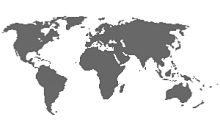
The Canada Revenue Agency (CRA) is looking for tips on potential offshore tax evaders and touting its Offshore Tax Informant Program (OTIP), which allows the CRA to pay for tips about Canadian taxpayers who are not declaring money or assets that they have offshore.
The CRA reports that since the program launched in January 2014, the agency has received more than 600 tips and is reviewing 120 cases. Under the program, if the CRA collects more than $100,000 in federal taxes from an individual found hiding assets offshore, the agency can pay a reward of between 5% and 15% of the amount collected to individuals who “provide precise details about Canadians hiding money or assets offshore and not paying the taxes they owe.”
Rewards will only be paid once the taxes owing are collected and after the taxpayer’s appeals have been exhausted, which may take several years. A committee of senior management at the CRA will determine awards, which will be treated as taxable income for the informants. There’s also a process for appealing the committee’s decisions to an internal review panel.
Convicted tax evaders, CRA employees and certain other people are not eligible for awards under the program. The CRA says it will protect the identity of an informant as much as possible, but that there may be instances, such as court proceedings, in which the agency needs the informant as a witness and it may not be possible to proceed without revealing the informant’s identity.
The CRA has also adopted several other measures to combat offshore tax evasion in recent years in addition to the bounty program, including increasing banks’ reporting requirements, extending the reassessment period by three years in certain cases, and making it easier for the CRA to obtain information from third parties, such as banks.
“It is not illegal to invest money or hold accounts offshore, but Canadian residents must report their worldwide income to the CRA,” the CRA says.